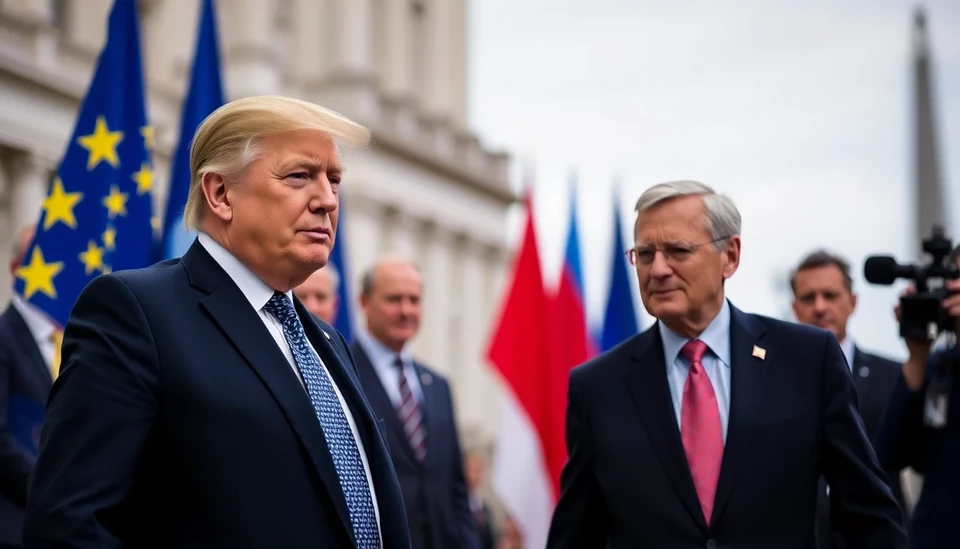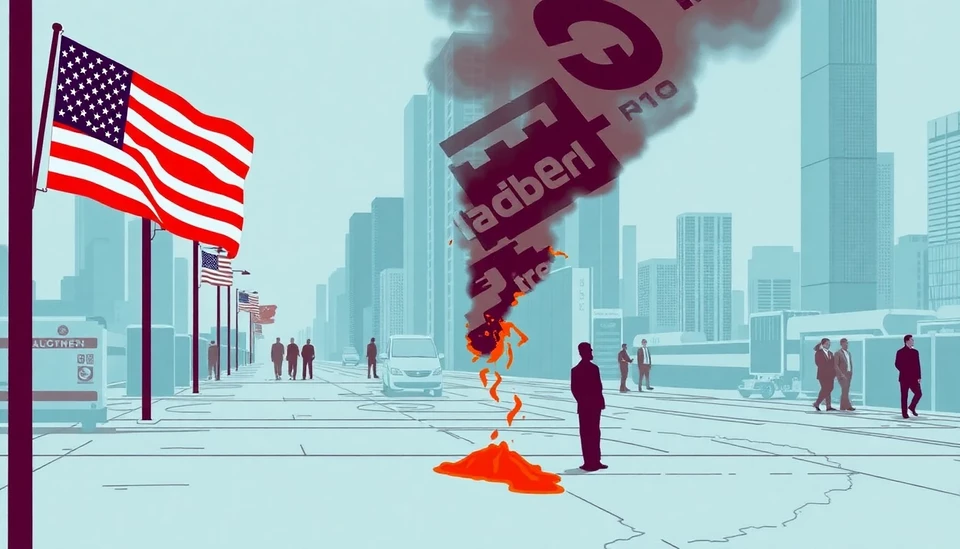
As 2025 approaches, European leaders are bracing themselves for a significant escalation in transatlantic trade tensions. This comes in the wake of former President Donald Trump's announcement that he intends to reinstate controversial tariffs on European goods, a move reminiscent of his previous administration’s approach to trade policy that has not just stirred up economic discussions but has also reignited political debates across the continent.
In recent statements, Trump has signaled a potential shift towards more protectionist policies, aimed squarely at the European Union (EU). Influential figures within Europe, including trade ministers and economic analysts, are alarmed at the prospect of these tariffs, which could target a wide array of products, from automobiles to agricultural goods. The fear is that such measures could not only disrupt established trade relationships but also lead to retaliatory actions from the EU, thus escalating into a full-blown trade war.
EU negotiators are currently engaged in a diplomatic dance, striving to preemptively mitigate the potential fallout. Underlining their commitment to free trade, European leaders are exploring various strategies to counteract the expected tariffs, including seeking alternative trade partnerships and reinforcing existing agreements with other markets. Such actions are seen as essential to shielding their economies from the adverse effects that increased tariffs would likely bring.
A significant concern among European officials is the disproportionate impact these tariffs could have on specific sectors, particularly manufacturing and agriculture. For instance, many manufacturers in Germany, which is heavily reliant on exports, could face severe financial implications if new tariffs increase the cost of doing business with the U.S. Meanwhile, the agricultural sector in countries like France and Spain fears diminished access to one of their largest export markets.
The looming tariffs also present challenges for cooperation on global issues, such as climate change and national security. European leaders worry that a practical focus on economic competition could strain their ability to work collectively on transnational challenges that require collaborative solutions. Therefore, the stakes are high—not just for the economic outlook but for the political landscape on both sides of the Atlantic.
As tensions mount, some analysts suggest that a more measured approach may still be possible. They argue that both sides have a vested interest in avoiding a trade war, given the interconnected nature of the global economy. Diplomacy remains a critical tool for resolving these issues, and discussions between U.S. officials and their European counterparts are likely to intensify in the coming weeks in an effort to find common ground before tariffs are enacted.
In summary, as the threat of renewed tariffs looms ever larger, European leaders are on high alert, prepared to navigate the complex and potentially transformative landscape of international trade in 2025. The situation is evolving rapidly, and how these developments unfold will have profound implications not only for European economies but also for global trade dynamics as a whole.
#TradeWar #Tariffs #EuropeanUnion #DonaldTrump #GlobalEconomy #FreeTrade #Protectionism
Author: Laura Mitchell




